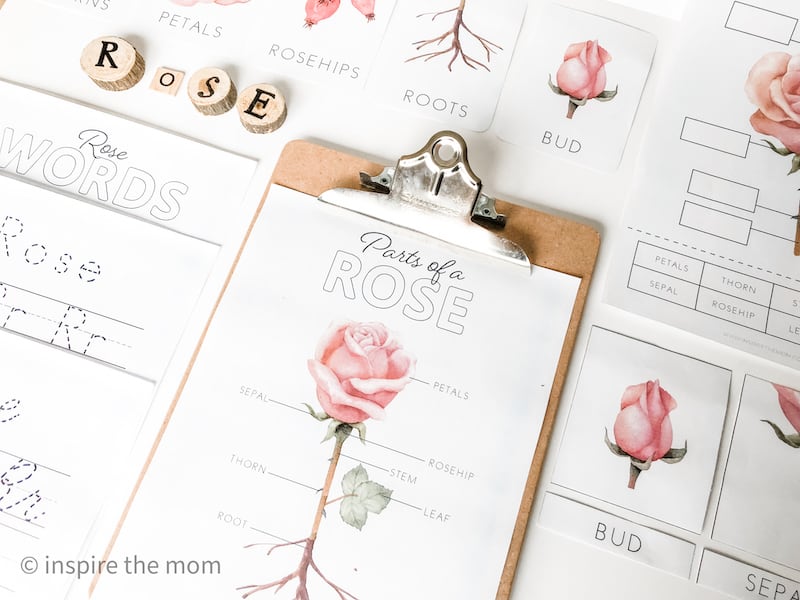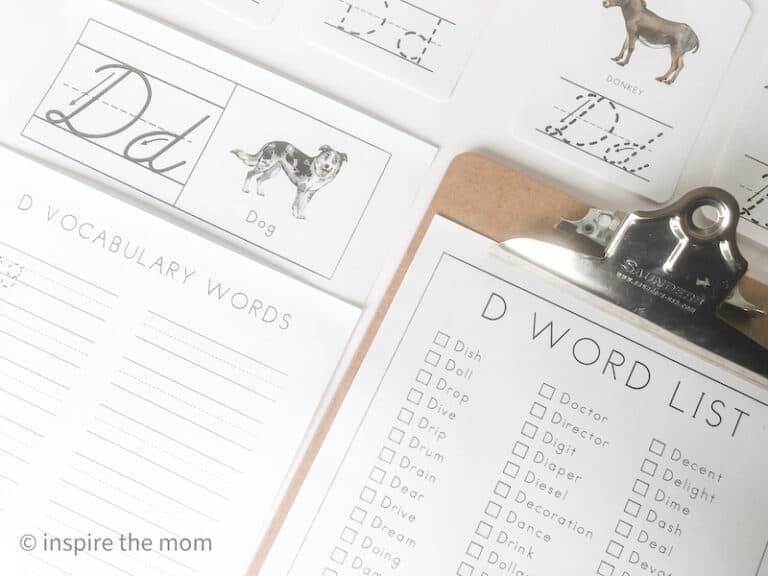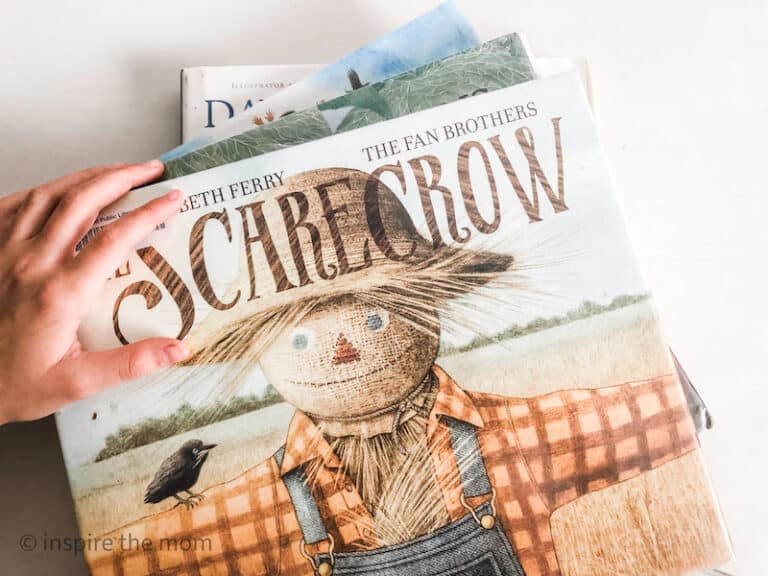7 Tips for Creating a Homeschool Unit Study
Have you ever wanted to go off the books and come up with your own homeschool unit study? Maybe you don’t have the money to purchase curriculum at the moment, or perhaps there’s a topic that you would like to cover in a certain way?
First off, let me encourage you. You can do it! Not only that, but the process for planning a homeschool unit study is straightforward and, in my opinion, fun,
I’ve created tons of units for my kids. From farm animals to how to write letters, And I love the freedom to pick and choose the resources and activities that we can do!
Want to know the other benefits of creating your own homeschool unit?

The Benefits of Creating Your Own Homeschool Unit Study
Along with the freedom to pick and choose the activities that you think your kids will really connect with, some of the other benefits of creating your own homeschool unit study include:
Other benefits of creating a unit study:
- It can be significantly less expensive
- Gives opportunities to create family memories
- Offers in-depth learning
- Allows for more out-of-home learning experiences
- Can be tailored to meet your kids interests and learning abilities
- Filters out unwanted information or activities
- You are not limited on topics
- Builds your confidence as a teacher and homeschool parent
- Allows you and your children to set your own pace
7 Tips for Creating a Homeschool Unit Study
Now for the how-to tips of creating your own unit study. These tips and tricks have helped me along with way and I hope they help and inspire you as you begin to create your own unit studies as well. Let’s get started!
1. Pick Your Topic
First of all, you need to decide on your topic (this can be anything from ocean animals to criminology). The possibilities really are limitless (historical event, book study, nature study, holidays, creative writing, art study, etc).
I always ask myself, “Do I have enough base knowledge on the topic?” And if not, “Do I know where to get the proper information?” This question gives me a general idea of how much time and research will I need to invest into this unit.

2. Decide the duration
How long will this homeschool unit study be? Will it be just a week, or will it span over a month or two? This information will dictate how much content and activities you will plan for.
3. Write objectives
Objectives are simply learning goals. What do you want your kids to get from the unit? These objectives can generic or very specific. Here are a few examples of generic learning goals you could write down.
- Expand knowledge on the topic by consuming books and media.
- Hand’s on exploration and participation in activities.
- Observe __________.
- Identify____________.
- Work on basic, age-appropriate skills (using this topic or theme) in math, literacy, handwriting, poetry, and nature play.
4. Choose resources
Now its time to choose your resources! Make your library book lists, plan the Youtube videos you will use, and download any worksheets or printables that you want.
Keep your objectives in mind. Each resource should support the learning goals you have chosen. If it doesn’t, you run the risk of going off topic or assigning unneeded busy work.
Note: If you are the creative type, like I am. Try making your own printable activities! While others might not like to do this step, it can be really enjoyable for others.
Need some book lists? Check out this huge free printable picture book list that is organized by topic!

5. Plan activities, experiments, & field trips
On to the the fun part! It’s time to plan activities, experiments, and field trips! In my mind, these are the meat and potatoes of the unit because your kids will get the opportunity to experience the topic first hand.
While table work, instruction, books, and lectures are necessary, hand’s on activities, messy experiments, and day-long field trips are where the lasting memories are made. With that being said, think through some things you could do that would really bring your topic home and make this homeschool unit study fun for your kids.
Needs some ideas? Check out this list of 200+ Homeschool Field Trip Ideas!

6. Set a schedule
Now it’s time to plan when this homeschool unit study is going to take place. It is really important that you think through the logistics of when this homeschool unit is going to take place within your schedule! If you don’t, you will never find the time.
Need a tip? Pick the same time everyday to go through your unit OR include the unit into your homeschool loop schedule. That way, it gets done, and you can reap the rewards of all your planning, preparing, and hardworking.

7. Choose a method of progress assessment
Lastly, choose a method of progress assessment to see what your kids gleaned from the unit you created. A progress assessment can be as simple or as detailed as you like. When I do a progress assessment at the end of a unit, I like to revisit my objectives and see if we accomplished what we set out to do.
Here are some questions you can ask: Did we go through all the resources? Can my kids identify_______? Did they observe___________? Can they summarize_______?
In addition to these questions, you can administer quizzes, have them fill out a Vin Diagram, answer questions, write a report, display their findings, give an aural summation of things learned, or complete a final project. Be creative, but always go back to the objectives and ask, “Were the learning goals accomplished?”

Unit Study Topics to Get You Started
Do you want a few topics to get your creative juices flowing? If so, here are a few ideas. But keep in mind, this is just a tip of the iceberg. The sky is the limit when you are choosing a topic!
- Space/planets
- National parks
- Winter animals
- Dinosaurs
- Insects
- The Civil War
- Managing money
- Farm animals
- Trumpet of the Swan book study
- A study of your state
- Butterflies
- Fractions
- Poetry
- Weather
- Habitats
- Geology
- Colors
- Mammals
- Birds
- Inventors
- Continents
- Character traits
- Bible stories
- Pet care
- Sports
- Holidays
Planning a Homeschool Unit Study- Q&A
1. What is a unit study?
A unit study is a focused study on one particular theme, topic, or event. All the resources and activities planned are centered around the chosen topic.
2. What makes a good unit study?
A good homeschool unit study includes a feast of information, quality books and media, hand’s on activities, well-planned experiments, field trips, and meaningful discussion.
3. What are some unit study topics for preschool?
Some common unit study topics for preschool include weather, colors, calendar, gardening, farm animals, ocean animals, bugs, apples, pumpkins, seasons, and holidays.




